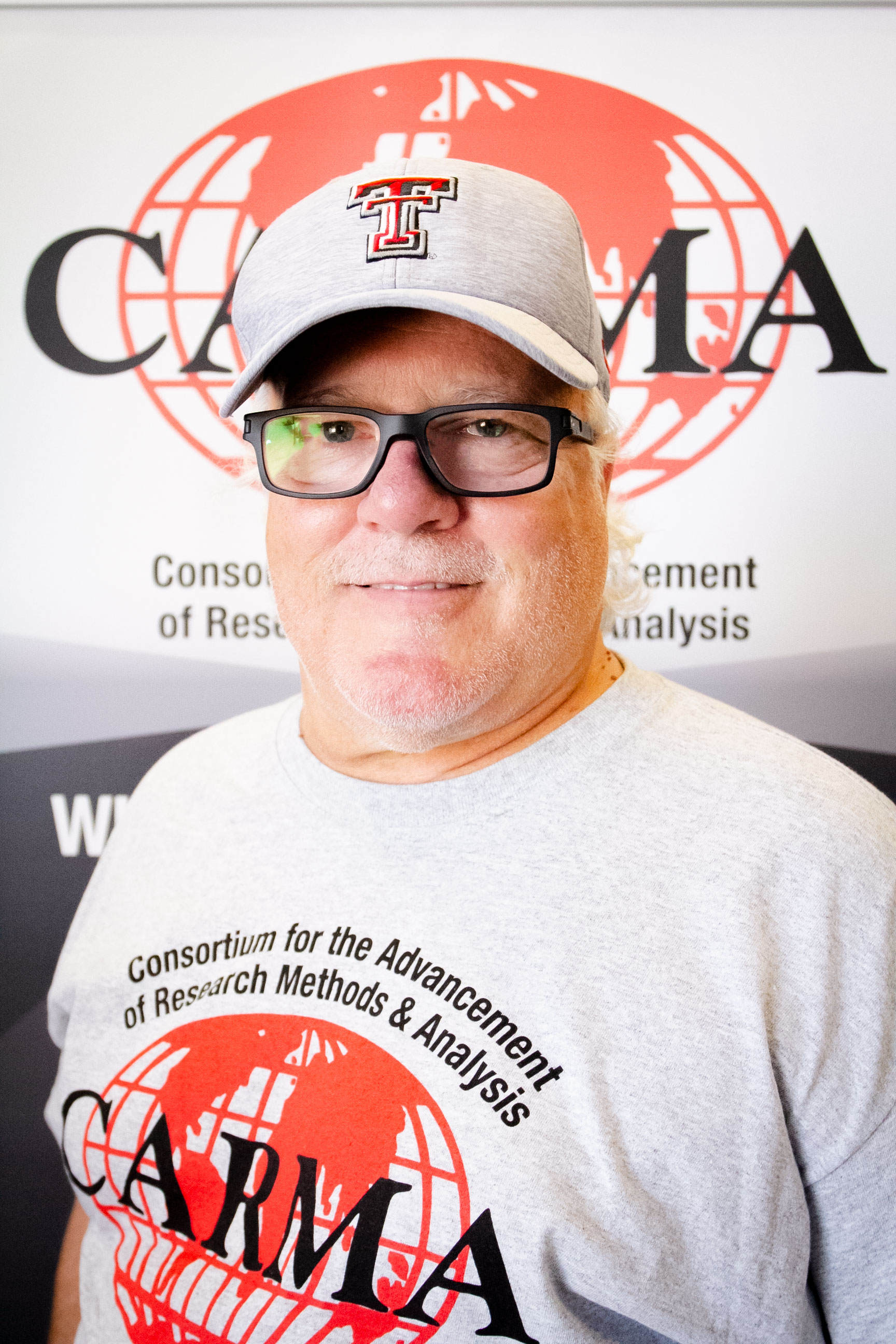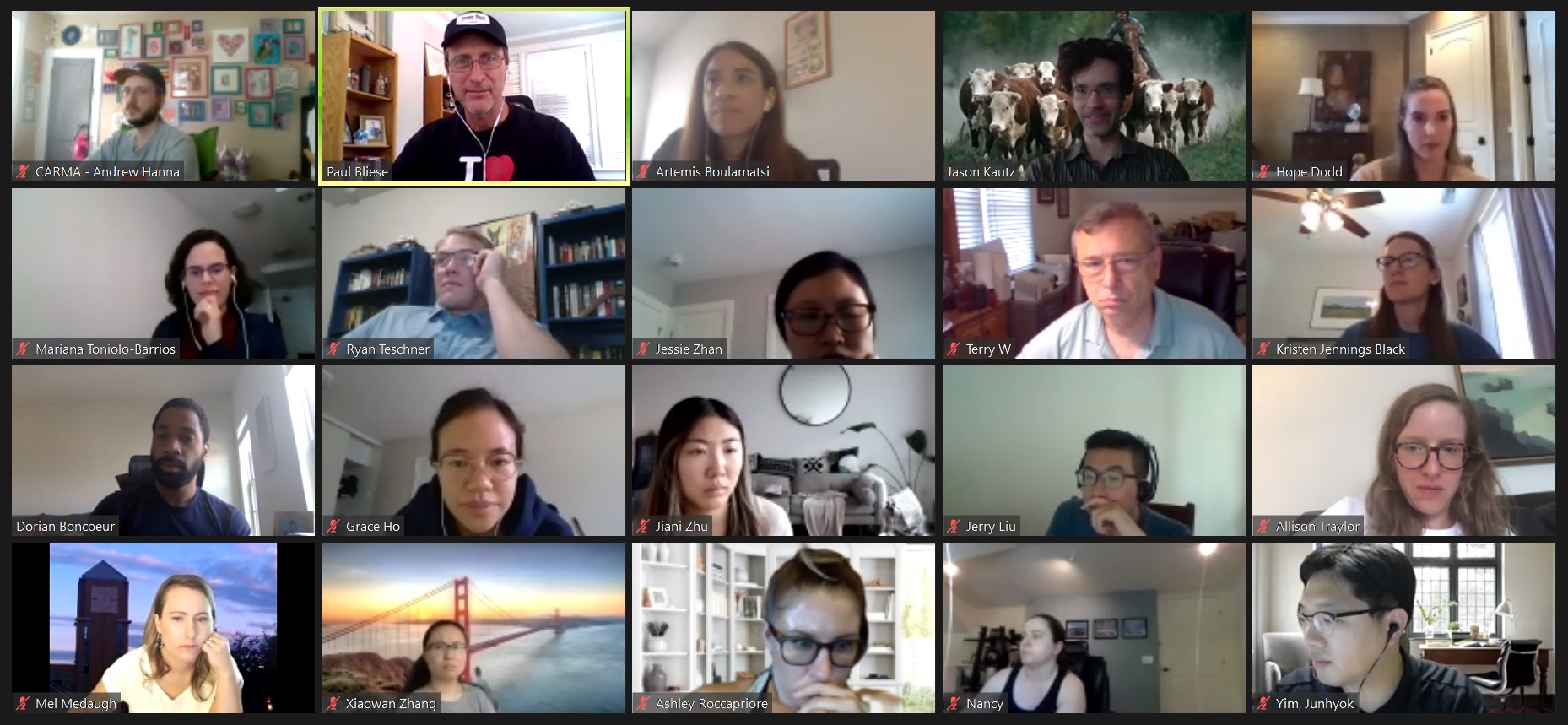
The Consortium for the Advancement of Research Methods and Analysis (CARMA) has seen an increase in member schools and user participation.
As the Coronavirus (COVID-19) continues to force changes in higher education and disrupts everyday life for billions of people around the world, the Consortium for the Advancement of Research Methods and Analysis (CARMA) in the Jerry S. Rawls College of Business has found a silver lining amid the turmoil of the pandemic.

"The primary goal of CARMA is to help doctoral students and scholars all over the world learn to conduct better research," said James C. and Marguerite J. Niver Chair in Business and Professor of Management, Larry Williams. "For many, the rapid shift to online teaching and learning in response to COVID-19 has posed technical and organizational challenges, but we have found this to be a great opportunity to reach wider audiences and improve access for our members."
CARMA provides learning opportunities to support high-quality research in an environment where the required tools and processes are changing dramatically.
"There are still a lot of places throughout the world where doctoral students are trained, but they don't necessarily have the proper resources to adequately prepare those individuals," said Williams.
CARMA has traditionally offered an annual institutional membership webcast series, in which nationally recognized methodologists present 10 advanced online lectures on research methods and data analysis. In recent years, the members-only webcast series has been expanded to include the Global Scholar Series, Advanced Reviewer Development Series, MoRe R Series, and Open Science Series. Non-members have been offered learning experiences through in-person, two or two-and-a-half-day short courses which normally take place throughout the summer in the United States, Australia and Italy. The short courses focus on hands-on experiences and the application of different research methodologies through equal amounts of lecture and lab-time.
"We normally begin promotion of our in-person summer programs in early February, which is about the same time where we really started to see more conversations about Coronavirus," said Williams. "Then things got progressively worse, particularly in Italy where we already had a summer session planned."
CARMA quickly began to evaluate their planned programming and weigh options about the safest way to proceed.
"Over the years, we had regularly been asked about doing our short courses online, but I didn't really want to go in that direction," said Williams. "Not only would we lose the camaraderie and networking opportunities that come with an in-person event, but the whole technology infrastructure that would be required was much less developed when we started these short courses in 2004."
As COVID-19 continued to spread and travel restrictions were put in place, Williams and the CARMA team began to think more about the possibility of moving all of their courses online.
"With past interest, more user-friendly technology and the challenges surrounding in-person events, it seemed like a great opportunity to expand our reach. We began to reach out to our host schools and instructors and within a two-week period we went from zero online short courses to being set to deliver online programs in four global regions," said Williams.
Equipped with the increased flexibility and capacity of the online environment, CARMA pushed their plan even further, expanding their offerings to other schools that they had worked with in the past.
 From April to July, CARMA hosted 33 short courses in multiple time zones, including
courses in Australia, North America, Europe and Asia. Over 600 participants, including
31 from Texas Tech, representing 165 different universities from around the world
participated in the virtual learning experiences.
From April to July, CARMA hosted 33 short courses in multiple time zones, including
courses in Australia, North America, Europe and Asia. Over 600 participants, including
31 from Texas Tech, representing 165 different universities from around the world
participated in the virtual learning experiences.
"We had participants from prominent universities such as Harvard, Yale, University of South Australia, Indian Institute of Management, University of Sydney, University of Liverpool and most of the Big Ten and Big 12 universities," said Williams. "Not only is this international exposure good for CARMA, but it is also good for Texas Tech as we continue to enhance our reputation as a leading research institution."
Due to the positive response, expanded reach and economic advantages of the online environment, CARMA has already made the decision to continue with the online format for its 2021 events.
"Moving online has opened up a door for people who may not have previously had a budget for travel to take advantage of our offerings," said Williams. "Overall we have been very effective this summer. Course evaluations were very good, and we will continue to make efforts to improve the virtual experience for future attendees."
